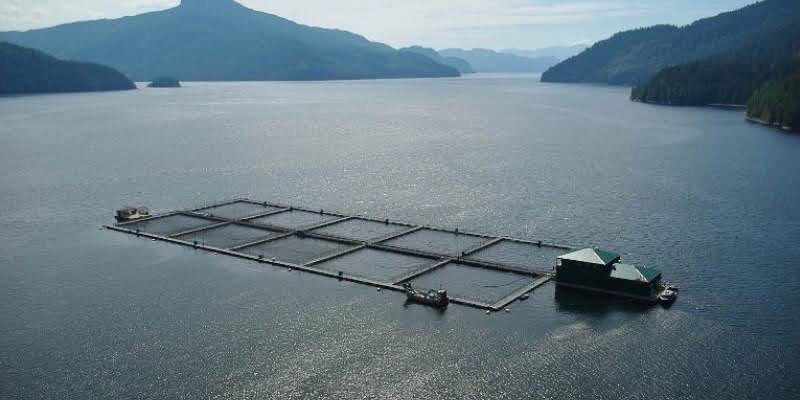Court orders protestors to stop harassing fish farm workers
Marine Harvest continues to hope for meaningful dialogue with protestors
By Fabian Dawson
SeaWestNews
Fish farm workers at Swanson Island, who have been subject to aggressive and bullying behaviour by protestors, are heaving a sigh of relief after a court ordered the eco-militants to leave the area.
The B.C. Supreme Court has given the protestors until 6pm this Saturday to vacate the houses and the dock on Swanson Island, located east of Port McNeill, which belong to fish farm company Marine Harvest.
The court has also set June 25 to hear an application by Marine Harvest for a broader injunction order.
“In Canada everyone has the right to peaceful protest, but not when it interferes with legitimate activities or crosses the line into aggressive, bullying behaviour,” said Jeremy Dunn, Marine Harvest Director of Community Relations & Public Affairs.
“We asked for a court injunction after our employees endured many months of aggressive protest activities and Marine Harvest made numerous attempts at dialogue with protest organizers, which were rebuffed,” he said.
“Our staff must be able to work in a safe environment, free of harassment and intimidation,” said Dunn.
The court decision comes in the wake of an Angus Reid poll on the contentious Kinder Morgan pipeline expansion project which showed that the protestors do not represent mainstream views. Many of the protestors against the pipeline are also involved in the anti-salmon farm lobby, which gets funding from foreign interests.
Marine Harvest was previously granted an injunction against activists who were occupying its Midsummer Island salmon farm in December 2017. In delivering that decision, BC Supreme Court Justice Voth was clear that those occupying the worksite had harassed Marine Harvest employees, had tampered with Marine Harvest equipment, and at times the number of occupiers had significantly outnumbered the number of workers at the site.
In his decision Justice Voth stated: “I consider that the activities of the Defendants that I have described gives rise to real safety issues.”
In yesterday’s decision, the injunction order specifically required indigenous school teacher Ernest Alfred and Karissa Glendale from the Namgis First Nation to vacate and remain off the Swanson houses and dock which they have occupied for months.
Alfred and Glendale were also ordered to remain off 12 other Marine Harvest farms and related sites they, or others have previously occupied.
The duo was ordered to tell others that they need to vacate the installations and remain off the other Marine Harvest facilities until the matter is further considered by the court on June 25.
If anyone occupies any of Marine Harvest’s facilities between now and June 25, Marine Harvest has the right to return to court on 48 hours’ notice.
“Meaningful dialogue with First Nations, where we have been operating salmon farms for 30 years, remains a priority for Marine Harvest. Unfortunately, our efforts to date have not been successful, but we remain hopeful,” said Dunn.
Marine Harvest has reached agreements with 15 First Nations, and approximately 20 per cent of its workforce is of First Nations heritage.
Key Facts:
- The Swanson Island salmon farm tenure and aquaculture licence were issued in 1990, and the farm operates with licenses granted by the Province of B.C. and Canada.
- The current Provincial tenure licence for Swanson was granted in 2013, after five years of Crown consultation with the ‘Namgis First Nation.
- Over the past decade, Marine Harvest has collaborated with the ‘Namgis First Nation on science projects, has supplied juvenile salmon to the Nation-owned land-based salmon farm, and continues to seek regular dialogue.
- Marine Harvest Canada has a track record of collaboration with First Nation partners – with some agreements dating back 20 years. The company operates within the traditional territories of 24 First Nations and has formal agreements with 15 of these Nations and eight First Nation-owned businesses
- Approximately 20 per cent of the Marine Harvest Canada workforce is of First Nations heritage. Marine Harvest Canada operates salmon farms and processing plants in British Columbia, Canada, where 600 people raise 45,000 tonnes of sustainable Atlantic salmon each year.
RELATED LINKS:
Court dismisses ‘Namgis application to stop restocking fish farm
Another BC fish farm gets ASC certified

